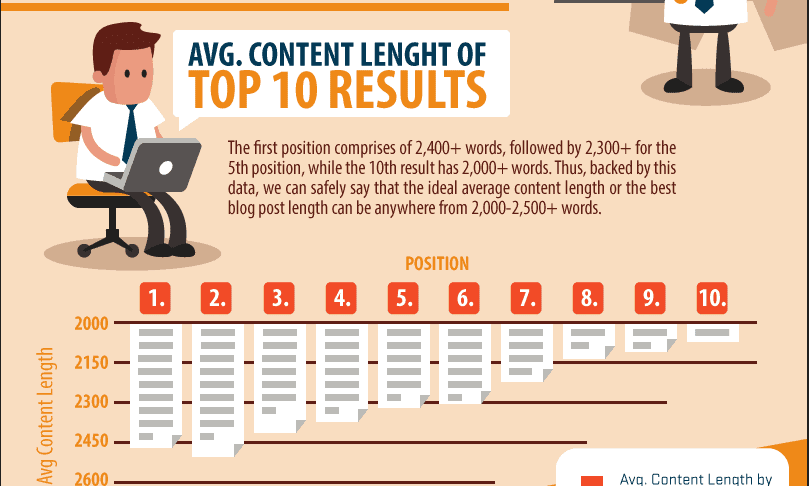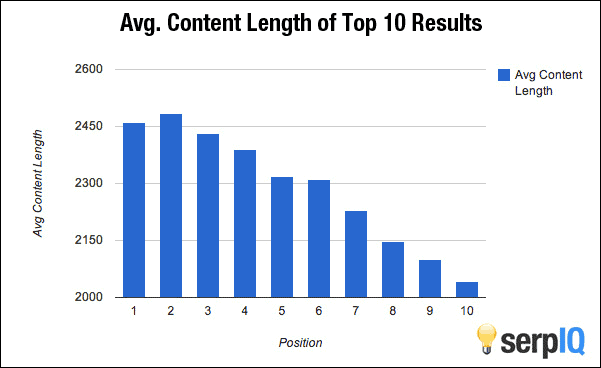
I regularly come across blog posts, articles and social media updates extolling the benefits of long form content writing.
I have myself repeatedly stressed that long form content is important not just for establishing authority, but also for improving your search engine rankings. But I have always believed that it is not as a “do or die” situation as it is made out to be by some content marketing experts. You don’t always need long form content.
It’s not the length, but the quality and relevance of your content that matters. Google says that 400 words mean good SEO and anything less than 400 words is thin content.
Again, you need to go to the root cause of what is thin content. Thin content is irrelevant content simply used to fill up a website or blog. It delivers no value. It is simply there for the sake of appearance in the search listings.
You don’t need long form content at all?
You need it. In the beginning.
Given a choice, both search engines and people who would like to link to your content, prefer comprehensive blog posts and articles on a given topic.
Given a choice, they would rather link to a 3000-word blog post with multiple sections, than a 300 words of a quick knowledge sharing spurt.
I can relate to that. Writing 3000 words on a topic, with different sections and subsections, is no mean feat. When you publish 3-4 3000+ words blog posts on your website every month, it shows you work hard, and you have got a lot to say. And after all, I charge much more for 3000 words than for 300 words.
Authoritative, quality publishers indeed have lots of information to share through their own observations and research, and through the interactions that they have with other influencers in the industry.
The Google algorithm also assumes that since you are writing so much, you must be covering all the topics pertaining to a subject and the visitor doesn’t have to go through different websites to find different bits of information on the same subject.
For example, if someone publishes 5000 words on “The ultimate content writing guide”, and if it has been decently written, it is certainly going to enjoy greater pull compared to a blog post with a similar topic but containing just 100 words summarizing all the points in a bulleted list, unless these 100 words have been written by someone like Joe Pulizzi. More people are going to link to the 5000-word peace. This will improve its search engine rankings and make it easier for more people to find it. Far more people are going to link to it. It becomes self-perpetuating.
Frankly, long form content, just for the heck of being long form content, isn’t that useful. Recently I was reading a book by a well-known influencer (I’m not going to name him because I admire him) and what he has written in his book, he could have written in 10% of the pages his book has; he goes on and not just to have a thick book.
So, sometimes people publish 5000 words simply because they intend to publish 5000 words. Most of the time they are repeating themselves or they are publishing facts and graphs they have already published 10 times. Yes, those who don’t follow them regularly may be awed by the “length and breadth” they have covered, but experienced people like me can easily make out what they are trying to achieve.
Use long form content in the beginning. It is valued. It is appreciated. It also helps to cover all your bases. Your readers will appreciate if they can find everything they need in a single blog post.
Just like everything in life, there is a threshold, and after the threshold, things sort of move forward on their own unless you do something destructive.
Once you have built enough back links, once you are generating enough traffic, don’t bother with long form content unless you really have lots of information to share.
Once the traffic is good, even shorter pieces of content – 100-300 words – will begin to appear in search results.
In fact, once you have made a name for yourself (among humans and among algorithms), people prefer short form content because instead of having to go through a thesis, they get the answers they are looking for in 100-300 words.


